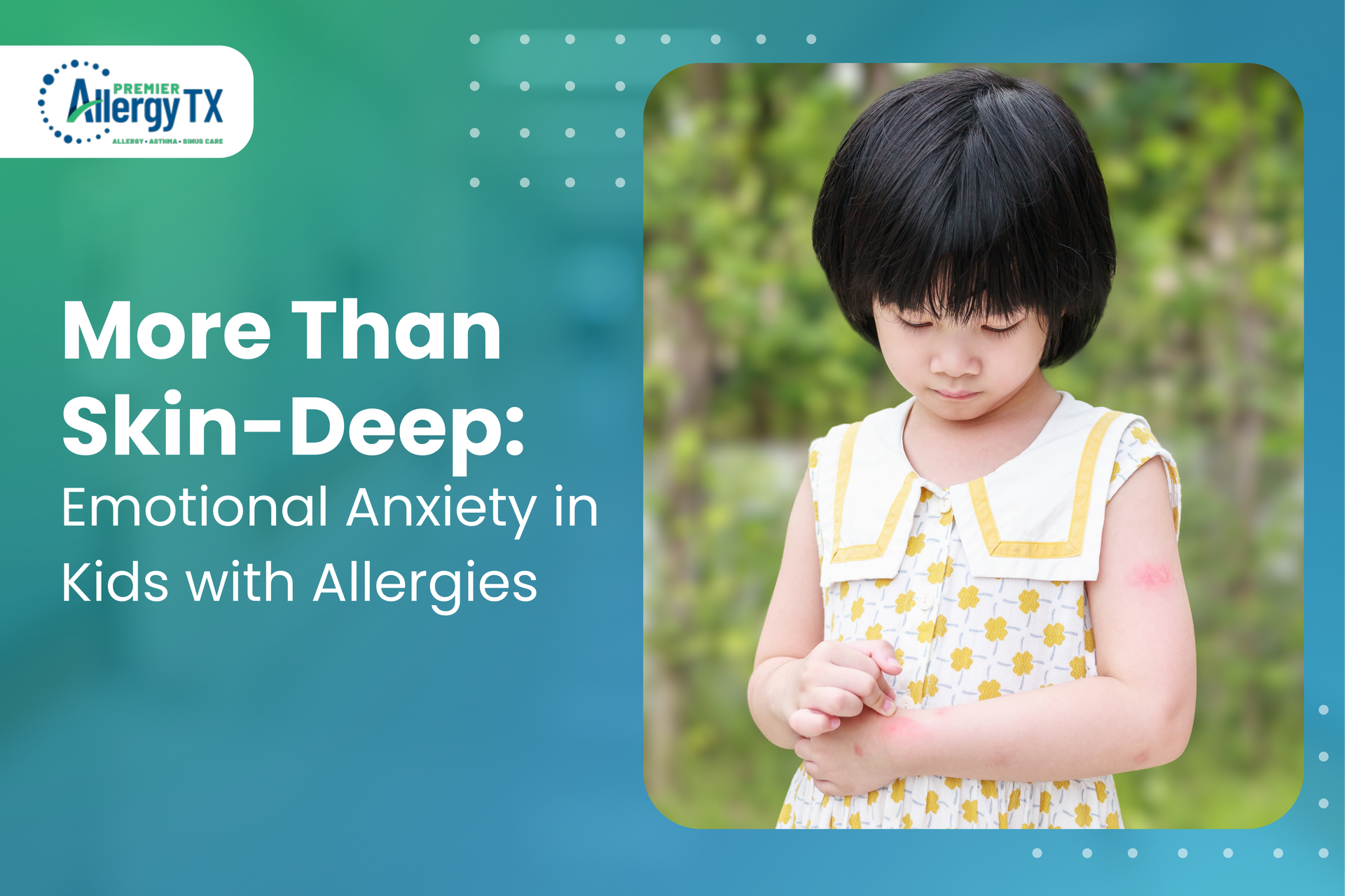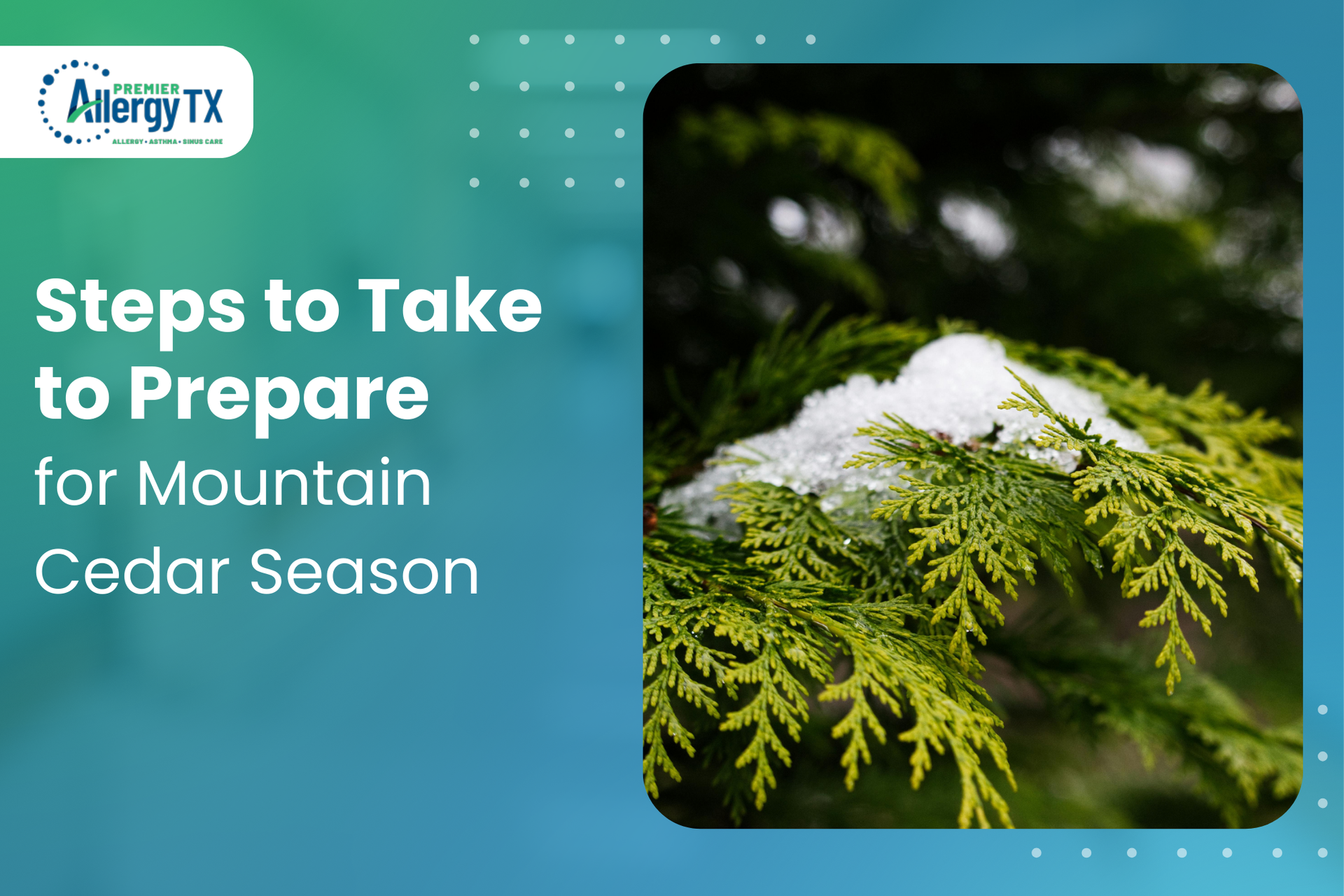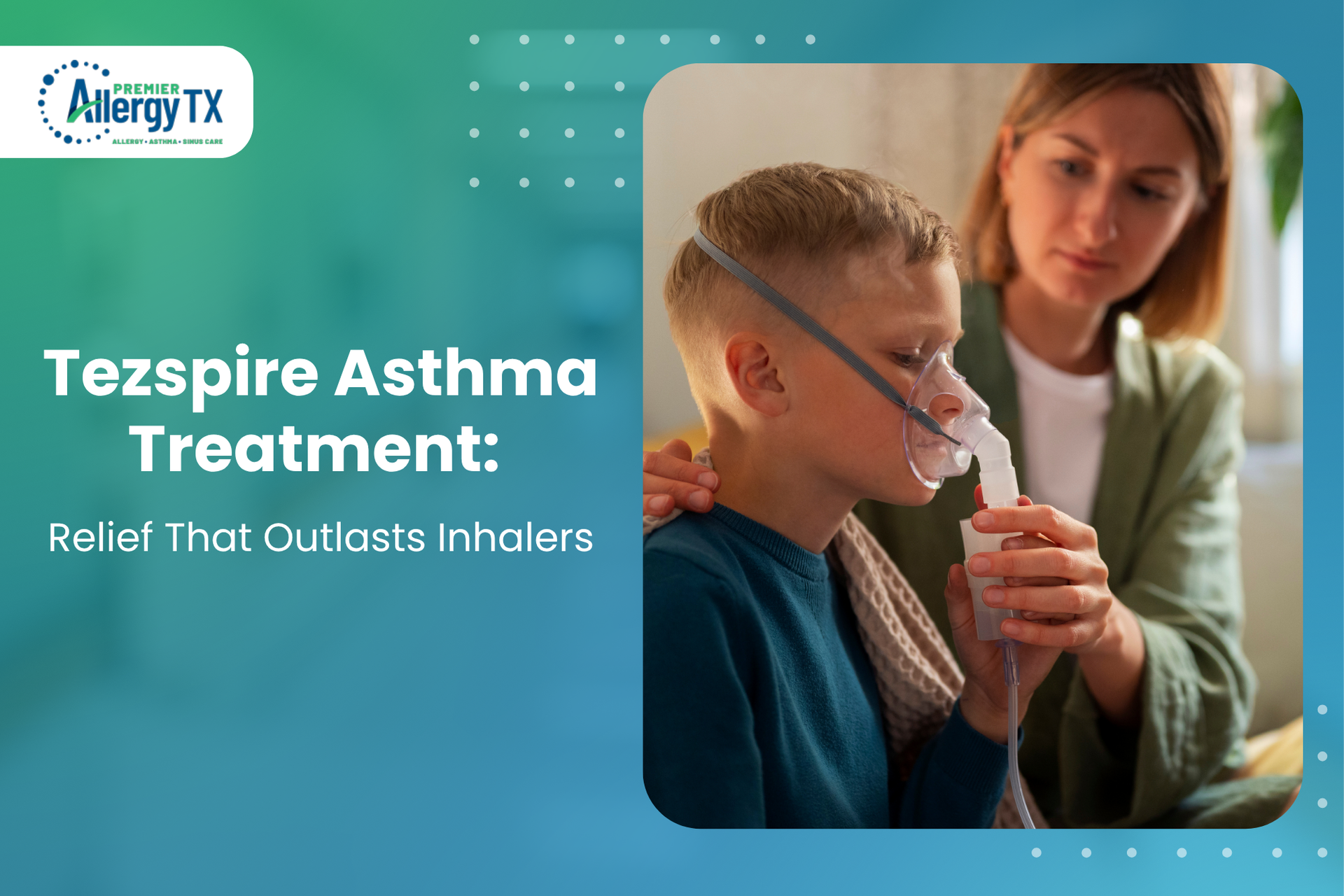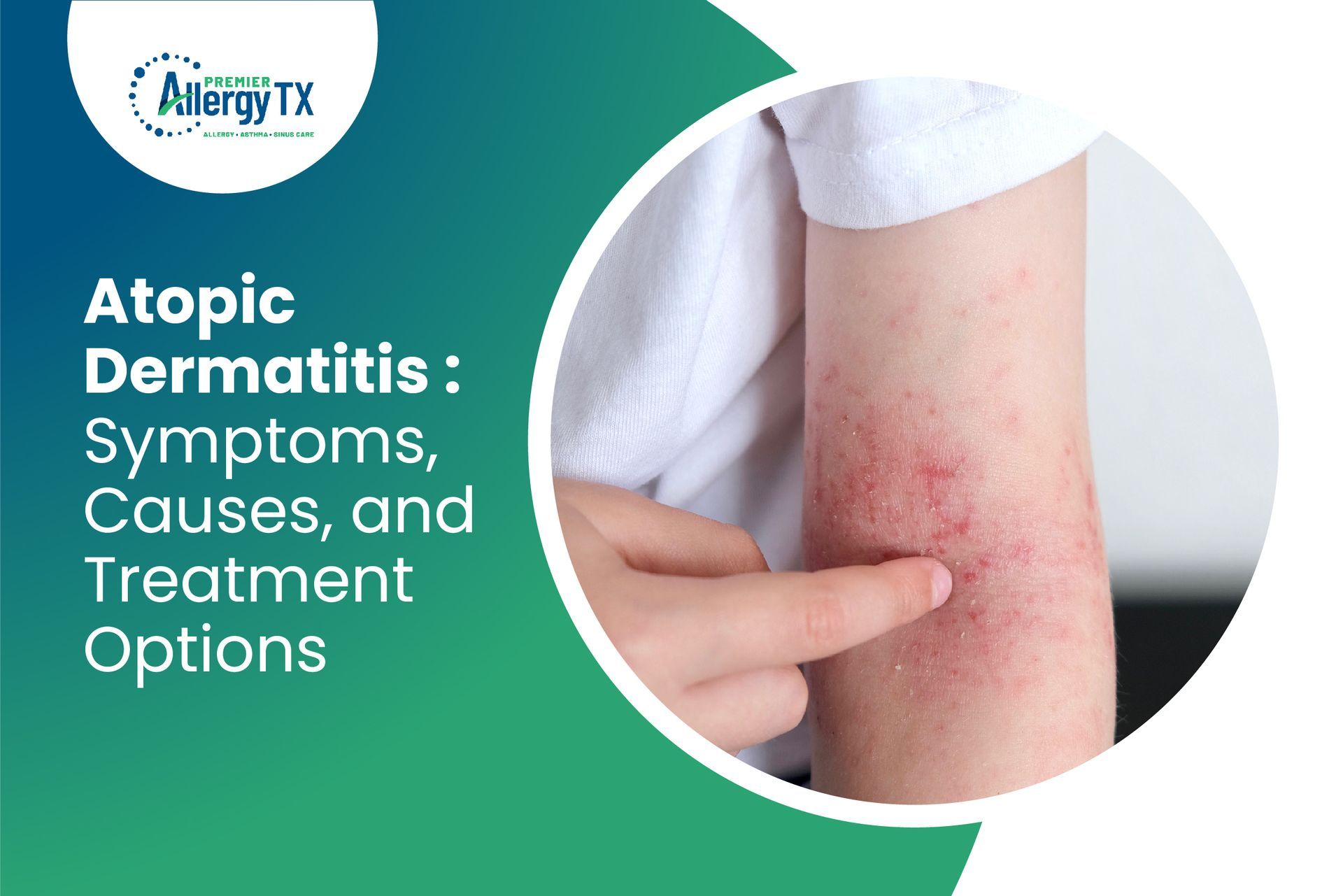Living with allergies as an adult, you become hyperaware, constantly anticipating the next trigger. Imagine what that’s like for a child, growing up confined to an allergen-free bubble, but also feeling left out. While other kids are outside making core memories, your child could be staying behind—safe, but missing out on freedom, fun, and friendships.
Over time, emotional distress as a result of isolation builds up, and worse, can make your child struggle in social situations. Before long, the fear of allergens turns into something heavier: ostracization, or even bullying.
More parents and professionals are beginning to recognize that allergies don’t just affect the body—they weigh heavily on a child’s emotions too. One study published in the Journal of Pediatric Psychology found that up to 1 in 3 children with
food allergies experience bullying because of their condition.
At Premier Allergy of Texas, we see the whole picture. This blog is here to help you understand the emotional side of allergies and support your child in feeling safe, seen, and included.
Give Your Child the Confidence to Thrive
Understanding the Link Between Allergies and Anxiety in Children
Did you know that children with allergies are more likely to struggle with anxiety? One study found that
24% of kids with food allergies had been teased at school—more than half experienced physical provocation, and in some cases, even by school staff.
Beyond physical symptoms, allergies in children can also bring waves of emotional challenges like constant worry, avoidance behaviors, and even social withdrawal. Imagine being scared of taking a bite out of a birthday cake or sitting alone during lunch because of food restrictions.
For many kids, living with a lot of “what ifs” is an everyday reality:
What if someone forgets what they’re allergic to? What if they’re accidentally exposed to an allergen? What if they have a reaction, and no one around knows what to do? These thoughts can chip away at their confidence and build lasting emotional anxiety.
Avoiding allergens is hard even for adults, and much more so for a child who’s still learning to navigate the world. That’s why parents need to watch out for signs that allergies are already affecting their child emotionally.
Recognizing the Hidden Signs of Allergy-Related Anxiety
Allergies don’t always show up physically. Sometimes, they can manifest in your kid’s behavior. The signs can look different, depending on their age:
Preschoolers (Ages 3–5)
- Becoming unusually clingy or needing constant reassurance
- Sudden
picky eating or refusal to try certain foods
- Frequent
emotional outbursts or tantrums without a clear cause
- Showing fear when
playing outside or near certain animals
- Complaining of
tummy aches without an obvious illness
School-Age Kids (Ages 6–12)
- Mood swings or irritability after certain meals or environments
- Avoiding activities they once enjoyed due to
fear of flare-ups
- Withdrawing from friends or avoiding birthday parties, picnics, or field trips
- Frequent
headaches or stomachaches before meals or events
- Trouble
sleeping due to worry about reactions
Teenagers (Ages 13–18)
- Fear of eating out or reluctance to join social gatherings involving food
- Increased
self-consciousness about carrying allergy medication
- Insomnia from overthinking possible reactions
- Skipping meals or
over-restricting their diet to avoid risk
- Heightened
anxiety in sports or physical activities due to allergic reaction concerns
If these signs sound familiar, the next step is helping your child feel understood, safe, and empowered.
Supporting Your Child with Tools, Teamwork, and Trust
Building their confidence and sense of control is an integral part of teaching them to manage their allergies. Begin with open, age-appropriate allergy awareness conversations:
- Young children might understand allergies as “something that makes me feel sick.”
- Older kids can grasp more details about specific triggers and how to prevent allergic reactions.
The goal is to inform without overwhelming them.
Feeling safe starts with a strong support network. Talk to teachers, caregivers, and close friends about your child’s allergies so they can:
- Help look out for allergy reaction symptoms
- Know how to respond in case of exposure.
Empower your child by encouraging them to:
- Speak up, read food labels
- Manage their allergies properly
- Use emergency tools like an EpiPen.
This is especially crucial when dealing with allergies in schools, where self-advocacy may be necessary. Always make it a point to help them feel capable and confident.
Above all, give your child a clear routine to follow. If they have dietary allergies, plan out their meals accordingly. No matter the type of allergy they have, check in on them regularly and teach them allergy-safe habits. Helping your kid feel prepared to manage
all allergies gives them a greater sense of control and keeps “what ifs” at bay.
Managing Anxiety with Everyday Strategies
Coping with the emotional impact of allergies can be overwhelming, but it doesn’t have to be. Teach your kid:
- Simple breathing exercises
- Mindfulness activities
- A calming bedtime routine
These habits help ease the stress they feel daily, and the best part is that you can introduce them at home, making them feel more emotionally in control.
More than adding new mindful habits to their routine, it’s also important to let your child continue doing the things they love. There are always safe ways to explore, allowing them to participate in sports, playdates, or birthday parties, even if allergies are a part of the picture.
If anxiety continues to significantly affect your child’s mood, sleep, or appetite, it may be time to:
- Consult a child allergy specialist.
- Seek support from a pediatric therapist.
- Consider severe allergy training.
Turning to professional support can help your child manage allergies with more personalized guidance and effective strategies.
Finding Support as a Parent or Caregiver
Caring for a child with allergies can be just as emotionally taxing for you as it is for them. Many parents share the same anxieties, and there’s no shame in seeking help. Finding community through support groups or online communities can help you feel seen, understood, and confident in managing allergy-related stress. Plus, resources are more within reach when connecting with other parents.
When things get harder, seeking professional help doesn’t make you less of a parent. Sometimes, we need that extra support to secure our family’s mental and physical health. When you start looking for a specialist who offers pediatric allergy treatment, consider one who also understands the emotional side of managing allergies.
Knowing When to Seek Professional Support
If the emotional toll of allergies begins to affect quality of life, it may be time to seek professional allergy support for children. Watch for signs like constantly worrying about exposure, avoiding activities they once enjoyed, and physical symptoms.
The collaborative care approach between you and a pediatric psychologist or allergist can help your child manage both the physical and emotional troubles. While allergists provide testing, treatment plans, and emergency action steps, psychologists can teach coping strategies and help reframe fear-based thinking.
You might also find local allergy support groups in your vicinity that can provide you and your child with support resources. There are also
national organizations that offer child-friendly education and emotional guidance.
With the right team and resources in place, you can make informed decisions in helping your child manage both their allergies and anxiety, empowering them to live life without fear holding them back.
See Your Child Thrive with Premier Allergy of Texas
When you raise a
child with allergies, helping them live fully and confidently should be one of your top priorities. From creating safe spaces and teaching calming techniques to knowing when to seek professional guidance, the best practices can help you make a big difference in your child’s overall well-being.
With the right tools, support system, and care team—like the experts at Premier Allergy of Texas—your child can live a life filled with fun and free from fear. By managing both their allergies and anxieties, you’re fostering resilience, confidence, and a brighter future.
Raising Confidence: One Allergy-Safe Step at a Time
Frequently Asked Questions
Can allergies cause behavioral problems in kids?
Yes. Allergies can make kids feel tired, uncomfortable, or anxious, which may lead to irritability, trouble focusing, or mood changes.
How do I calm my child during an allergic reaction?
It’s important to stay calm yourself, follow your allergy action plan, and use prescribed medications like antihistamines or an epinephrine injector (EpiPen) if needed. Speak to them in a soothing voice to help ease their fear.
Are there therapy options for kids with allergy-related anxiety?
Yes. Therapists can help children manage anxiety through techniques like cognitive behavioral therapy (CBT), breathing exercises, and mindfulness practices. Some centers also offer support for families.
















